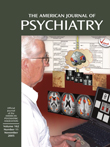Schizophrenia in Late Life: Aging Effects on Symptoms and Course of Illness
It is fully appropriate that as the elderly proportion of our population increases, we should have a book that addresses the elderly person with psychosis. Schizophrenia in Late Life is an excellent reference book. Dr. Harvey is a psychologist by training and has excellent experience in the study of chronic mental illness. The book is well written and highly informative.
Older people with schizophrenia are an often neglected group. The author describes the history of these patients and gives detailed information about their condition over the past 15 years. For example, elderly people with psychosis have long been shuffled into poorhouses, county farms, and nursing homes. This has made the study of this group difficult. As the asylums expanded into state hospitals, the accounting of elderly people with schizophrenia continued to be difficult, due to overcrowding and poor diagnostic techniques. Only in the last 20 years has operational study of the elderly subgroup of chronically mentally ill people been possible.
We have learned a fair amount about this condition. We see that these people are poorly equipped for the problems of later life. They have seldom been employed as young people and hence have no savings to “retire” on. Similarly, the condition of chronic psychosis usually means that no retirement contributions have been made to government programs by these individuals. As a result, the elderly person with schizophrenia is at the mercy of the least expensive care available, which sometimes results in no care at all.
Cognitive decline is often seen in schizophrenia. This is a common diagnostic problem once the person has become elderly. Many older people have dementia. This can be very difficult to sort out in the elderly person with schizophrenia if the history is unavailable. The cohabitation of demented elders and cognitively impaired elders with psychosis is commonly seen in nursing homes. In this setting, misdiagnosis and the subsequent incorrect treatment of elderly patients causes a multitude of problems.
Even before coming to old age, the elderly person with schizophrenia has had a number of treatments not shared by elderly people without chronic mental illness. Neuroleptic use (with possible tardive dyskinesia) is common, and ECT and even psychosurgery occur often in the histories of elderly patients with schizophrenia. Many former treatments lead to complications in the assessment of cognitive decline. As these people come into treatment settings, triage and care must be provided.
This is a complex group of patients. They bring histories of unemployment, family chaos, and serious medical problems. They need treatment, housing, and care, but they have limited resources of their own. The huge cohort of elderly mentally ill is growing and will do so for several decades. They produce a challenge for the geriatrician and for society in general. Dr. Harvey articulates this topic very well. This is quite a good book and we recommend it.



